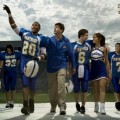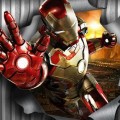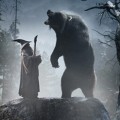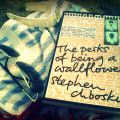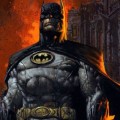The Best Debut Novels Throughout History
From the 1800s to the present day, these are my favourite début novels from throughout history. We've got Hobbits, violence, teenage awkwardness and tin men...
A Study in Scarlet (1887) – Sir Arthur Conan Doyle
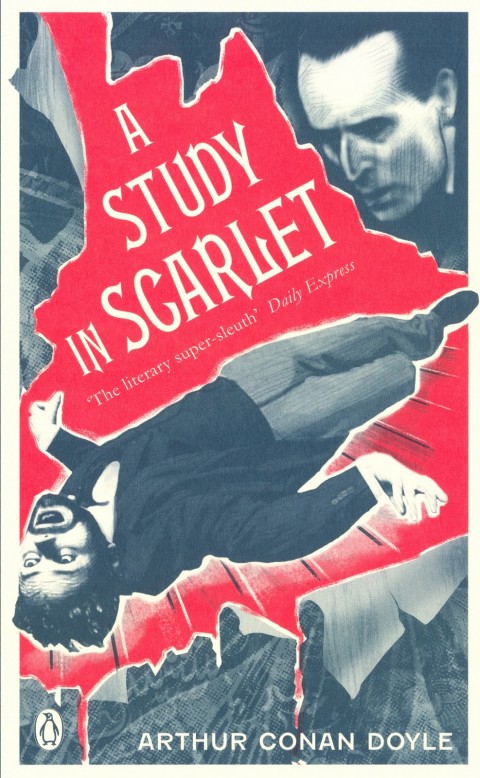
Who doesn’t love Sherlock Holmes? When Sir Arthur Conan Doyle wrote A Study in Scarlet introducing the eccentric British detective and his side-kick and friend Doctor Watson, he could not have imagined that a few years down the line, the pair would find their name amongst the most famous literary characters in the mystery/detective genre. Dr. Watson sustains a shoulder injury during the Anglo-Afghan War and is forced to take early retirement. He is on the lookout for a room to live in. This leads him to 221B, Baker Street where a certain Sherlock Holmes is looking for a flat-mate.
In fact it is Dr. Watson who convinces Holmes to take up a case where the main credit would go to the Scotland Yard detectives who approach them. Enoch Drebber, a young man is found murdered at an abandoned rural manor. There are blood spatters on the wall but no mark of injury on the dead body. There is also the word RACHE (German word for revenge) scrawled on one of the walls. At the crime scene, Holmes not only comes up with a detailed description of the murderer, but also the possible reason behind the killing.
We are introduced to Sherlock Holmes’ astounding powers of deduction based on observation, his ability to work backwards, his quick intelligence and vast knowledge on a variety of subjects. Seen and described through the eyes of our narrator, Dr. Watson, we embark on a remarkable and gripping mystery that derives its name from a discussion Holmes and Watson have about the kind of ‘detective consulting’ the former does –
“There’s the scarlet thread of murder running through the colourless skein of life, and our duty is to unravel it, and isolate it, and expose every inch of it.”
The Time Machine (1895) – H.G. Wells
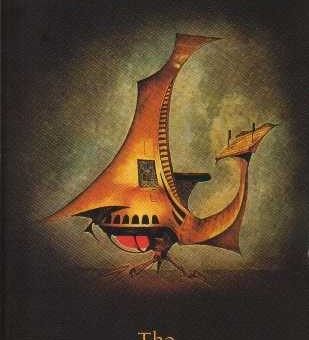
The Time Machine by H.G. Wells is one of my favourite science fiction narratives. A novella published in 1895, it was not only responsible for bringing the concept of time travel into our mainstream culture, but was also a narrative where the term ‘time machine’ was invented.
More…
The unnamed and unknown narrator refers to our protagonist as merely the Time Traveller. We do know that he is an English scientist and inventor residing in Richmond, Surrey. At a weekly dinner with friends, he reveals that he has built a time machine, a machine that can transport a person through space, time and dimensions. The following week, he recounts his adventures of the previous week where he travelled to places and times in the future and encountered a host of new creatures, worlds and situations, barely escaping with his life.
The Wonderful Wizard of Oz (1900) – L. Frank Baum
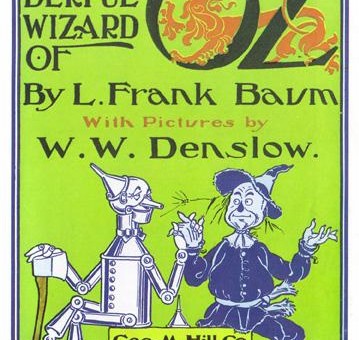
The Wonderful Wizard of Oz by L. Frank Baum is the perfect book to read at the moment if you haven’t already. These next few months will see the release of not one but two films based on the Wizard of Oz (one of which, the Sam Raimi directed Oz: The Great and Powerful starring James Franco, Mila Kunis, Rachel Weisz and Michelle Williams is already out).
Dorothy is a young orphan living with her Uncle Henry and Aunt Em on a farm in Kansas. Living in the middle of nowhere, her only companion is a little black dog named Toto and she longs to go out and see the world. A tornado promptly obliges and takes her, Toto and the farmhouse they are in to the magical Land of Oz. When the farmhouse lands, it kills the Wicked Witch of the East. In order to go back home to Kansas, Dorothy must first follow the Yellow Brick Road, undertake a journey to the Emerald City and take the help of the Wizard of Oz. On her way, she saves the troubled trio of the Scarecrow, the Tin Man and the Cowardly Lion, convincing them to travel with her to see the Wizard of Oz who could aid all of them with their troubles.
The Land of Oz with all its obstacles, creatures, politics, magic and races is beautifully rendered with imagination and loving detail, Dorothy makes for a charming protagonist and the other set of characters compliment the final outcome really well. At heart it is a fantasy book for children, but its innocence delight makes it one that relates to everyone.
The Hobbit (1937) – Professor J.R.R. Tolkien
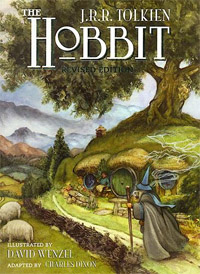
In a hole in the ground, there lived a Hobbit.
Thus began one of the most epic fantasy adventure narratives of all time, spawning the equally epic The Lord of the Rings books. J.R.R. Tolkien thought of the opening line while grading English papers at Leeds University and embarked on a journey to write a ‘challenging and enjoyable’ book for children. In the process, he not only wrote one of our modern classics, but also one that can be enjoyed by everyone, whatever age, background or experience. It is original, witty, full of subtle humour and wonderfully imaginative in its world of Middle-Earth.
Bilbo Baggins is a Hobbit of the Shire, a quiet person who likes his food, drink and peace where he can smoke his pipe. He detests pesky adventures, preferring instead to be fully ensconced in his cozy, comfortable hobbit hole at Bag-End. Enter wizard Gandalf the Grey who convinces him (much against his will) to join a quest to reclaim the lost Dwarf Kingdom of Erebor from the fearsome dragon Smaug. Bilbo joins a group of thirteen dwarves led by warrior, Thorin Oakenshield. It is on this long and dangerous adventure through foreign and magical lands that Bilbo finds himself in the cave of the creature Gollum and gains possession of the ‘One Ring’ which proves to be of such importance later in The Lord of the Rings. In turn, he also learns a lot about hidden things in himself.
Tolkien has created a world in which we can delight in, with a variety of well-rounded characters we can relate to, empathise with, get thoroughly involved in and want to know more about. In a narrative full of magic, wizards, treasure, dwarves, elves, goblins, dragons and delicious hobbit feasts, the only complaint I had was that The Hobbit had to end.
To Kill A Mockingbird (1960) – Harper Lee
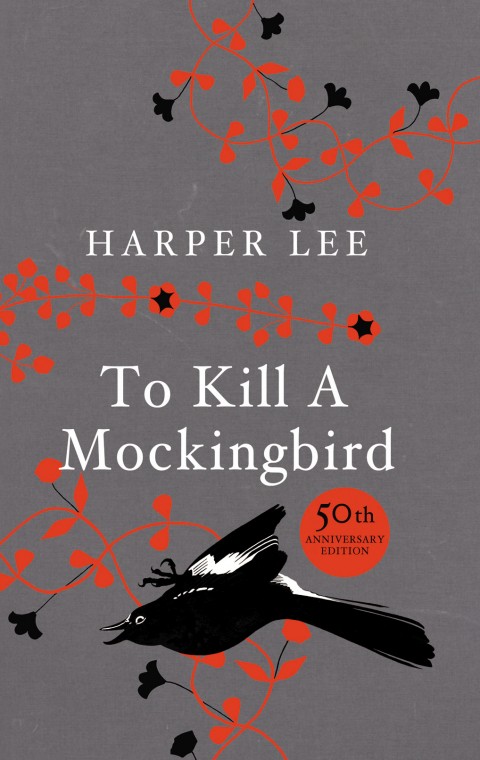
Harper Lee only wrote one book. But to her credit, To Kill A Mockingbird became an instant literary favourite, a Pulitzer Prize winning classic that has aged wonderfully well and will continue to enchant future generations of readers.
The narrative is set in the fictional town of Maycombe, Alabama during three years of the Great Depression. Scout Finch, at only 6 years old is our young and innocent but delightfully imaginative and precocious narrator. Other important characters in her world include her older brother Jem, their friend Dill who visits his aunt in Maycombe every summer and their neighbour, the reclusive Boo Radley. The three kids become fascinated by Radley, and over three summers use their vivid imagination to create their own version of why he never leaves his house, why nobody has seen him for years and why other residents of Maycombe are reluctant to talk about him.
That final summer, another incident captures their time and attention. Jem and Scout’s widowed father, Atticus Finch, a lawyer is called up to defend Tom Robinson, a local black man accused of raping Mayella Ewell. It is this event and the consequent repercussions that force the kids to grow up earlier than their young years, making this another classic coming-of-age narrative.
Loosely based on an event that occurred near Harper Lee’s hometown in 1936 when she was only 10 years old, the writer, through the adventures of Scout, Jem and Dill, also weaves in observations and insights about racial unrest and injustice, class, social and gender roles in the old South. Yet it never appears heavy-handed even during the now-iconic courtroom scene when Atticus makes his impassioned and rational case proving Robinson’s innocence. Using Scout as the narrator, the result is a warm, funny and charming narrative that is ageless, timeless and without any social, racial or cultural barriers to its enjoyment.
Fight Club (1996) - Chuck Palahnuik
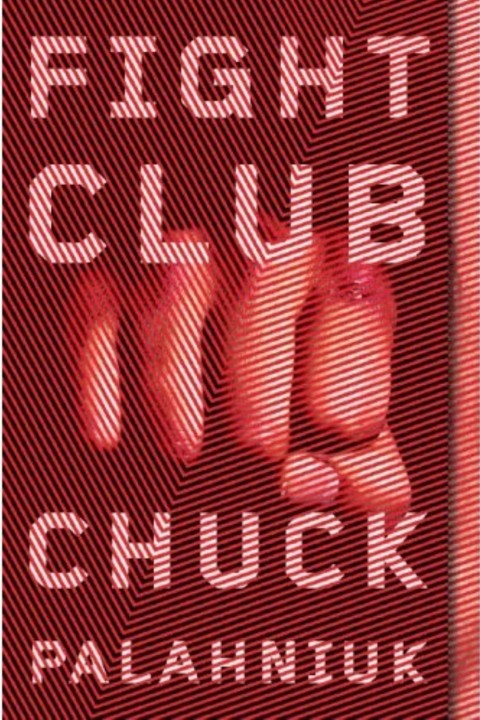
His debut novel is incidentally the only Chuck Palahnuik book that I have enjoyed (and obviously its film adaptation). Fight Club has an unnamed narrator/protagonist, who as a cure for insomnia, is advised by his doctor to go to testicular cancer support groups so he can ‘see what suffering is really like.’ He finds that sharing in others’ problems helps him with his own. Until he stumbles upon Marla Singer who is a faker just like him. He then meet Tyler Durden, a mysterious stranger who introduces him to the world of underground fight clubs claiming that it’s the best form of therapy for all their problems. Durden soon forms Project Mayhem, designed to spread his anti-consumerist propaganda throughout corporate America. It’s a disturbing, violent and unbalanced novel that rightly captures not only the narrator’s state of mind, but also the post 1980s crisis of masculinity and resultant problems.
Killing Floor (1997) – Lee Child
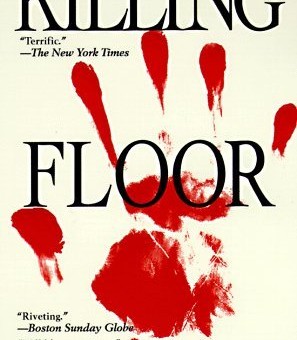
Lee Child’s debut novel introduces us to ex-Military Police Jack-none-Reacher. Height: 6 foot 5 inches. Weight: 220-250 pounds. It’s been 6 months since he left the Army and is aimlessly travelling around the United States of America, a country he’s not had much chance to live in after growing up on Army bases around the world. He is passing through the fictional town of Margrave, Georgia because he remembers that his brother, Joe had mentioned “Blind Blake” (a musician) had died there. In less than an hour, he’s wrongly arrested for murder with no chance of convincing the authorities of his innocence. This kick-starts his first adventure as the long vigilante of sorts who always gets caught up in trouble for simply being around.
The writer showcases impressive research and attention to detail, a crisp, fast-paced plot, an intriguing main character (the other characters are three-dimensional as well) and plenty of well-written and executed action sequences. It does stretch credibility at certain points in the narrative, but then again, it fits into the genre and the world Child has created for Reacher. The first-person narrative (one of only 4 books in the series where there is no third person narrative) works because we get introduced to the character in his voice, experience everything in real-time with him and get to be inside his head through every minute move. There is plenty of stuff here and the other books in the series for the intelligent and discerning reader to enjoy, whatever genre he or she prefers.
Harry Potter and the Philosopher’s Stone (1997) – J.K. Rowling
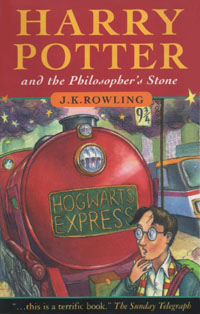
When J.K. Rowling was a struggling single mum living in Edinburgh and working on her first novel, she must never have imagined that just a few years later she would be one of the richest women in Britain, with her book series part of an all-time bestsellers lists and a huge sprawling franchise. Harry Potter and the Philosopher’s Stone was published by Bloomsbury in 1997 and it was a fresh, charming book with interesting, relatable characters, a wonderfully sketched out and detailed parallel world to our Muggle (the word for people of non-magical blood) existence and of course, plenty of magic. Starting off with one of my favourite first lines – Mr. and Mrs. Dursley of number four Privet Drive were proud to say that they were perfectly normal, thank you very much – we are introduced to the world of the book and to use a cliché, there is no looking back.
In The Philosopher’s Stone, we follow our main protagonist, an eleven year old Harry Potter as he navigates through his first year at the Hogwarts School of Witchcraft and Wizardry, deals with learning truths about his past (his parents murder at the hands of Lord Voldemort, the origins of the lightning bolt shaped scar on his forehead) and takes the first step (though he may not know it yet) towards his true destiny in an action-packed confrontation at the end of the book.
The premise is exciting, the characters instantly relatable whether it’s Harry’s two best friends, Ron Weasely and Muggle-born Hermione Granger, or the faculty at Hogwarts, Professor Dumbledore, Professor McGonagall, Professor Snape or the bumbly but lovable half-giant Hagrid, and the writing style is funny, effective and easy without being over-simplistic. What makes it work even more is the strong base of reality amidst all the imaginative magic and wonder. The fantasy does draw us in but there’s an equally needed balance of reality that anchors us, a balance that continues for the rest of the series.
The Perks of Being A Wallflower (1999) – Stephen Chobsky
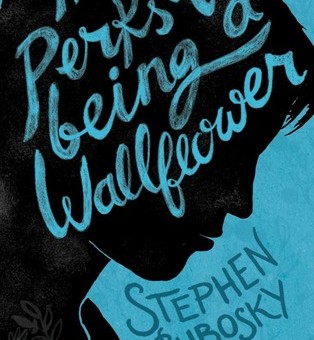
The Perks of Being A Wallflower by Stephen Chobsky is the classic ‘bildungsroman’, coming-of-age story that is found a dime a dozen in literature and movies. I have to confess that it was not until I saw the recent film version (starring Logan Lerman, Emma Watson and Ezra Miller, and directed by Chobsky himself) and loved it, did I read the book.
Our narrator is Charlie, a socially awkward introverted teenager in his freshman year of high school. He’s had troubles with depression before and is going to therapy. The book is written in first person, with Charlie writing letters to an unnamed ‘friend’. Because of this epistolary format, the book is quite rambling and fragmented with not a lot of real structural cohesiveness, and the language, barring some interesting insights is fairly repetitive and standard. But Charlie has an honest voice and his character is likeable and one that we can relate to and sympathise with.
He goes through a journey we’ve all been through growing up, or will grow through eventually so there is nothing very unique about his experiences. His sincerity and genuineness however make him stand out from the crowd and make us root for him and agree with him when he points to the universality of emotion.
“You are not alone in the world. No matter what you’re going through, somebody gets it”.
Chobsky doesn’t avoid or gloss over the harsh or awkward realities of life or growing up but neither does he shy away from the moments of beauty, calm and hope we all know life does offer. The step-brother and sister duo of seniors Patrick and Sam take Charlie under their wing and show him exactly that. They help him be more than just a wallflower and he in turn touches their lives and the lives of their social group in ways they could never have imagined.
The Interpretation of Murder (2006) - Jed Rubenfeld

A lawyer by profession, Jed Rubenfeld’s debut novel was one that took me by surprise. I didn’t expect to like it as much as I did. The title is an homage to famous Austrian psychoanalyst Sigmund Freud’s well-known The Interpretation of Dreams book and the inspiration doesn’t stop there. The book derives from reality, in this case the first and only trip Freud undertook to the United States of America in 1909, and uses that as a base for its main fictional premise.
A New York debutante’s been murdered and another, Nora Acton is found tied to a chandelier in her parents’ home. She is severely wounded and cannot remember what happened. In fact she cannot even speak. Enter Freud and his American disciple, Stratham Younger who are asked to help her recover her memory in order to identify the killer.
The book is well-researched, has good pace, clipped, crisp language and an intriguing plot that will keep you turning the pages. Rubenfeld manages to find an easy balance between the physical and mental action and the result is an intellectual thriller.
If you like it, Pass it on
 COMMENTS
COMMENTS
Brett Easton Ellis "Less Than Zero" (1985) ?
@Lars - This is a personal top 10 I've compiled from only the books I've read, but Less Than Zero has been on my to-read list for a while.
Trainspotting would have to be on my list. Amazing. I need to reread it.
Catch-22 deserves an honourable mention as a debut novel, and my favourite novel ever written. Historically I'd say Defoe's Robinson Crusoe is a pretty important debut as well.
The Secret History by Donna Tartt is my shout. Outstanding debut.
Fine choices, in the main. But The Killing Floor? Really? I had to read it for work a bit back. Jesus. Had to give up halfway through when bullets started magically going round corners. Best debut novel of 2012 - The Panopticon by Jenni Fagan. Future literary star.
What about Iain Banks The Wasp Factory?
Honourable mention should go to John Kennedy Toole for his first, and only novel 'A Confederacy of Dunces'. It's absolutely hilarious and I strongly recommend it! http://en.wikipedia.org/wiki/A_Confederacy_of_Dunces
Kingsley Amis. Lucky Jim. I want to recommend something else by the same author: One Fat Englishman
Catch-22 and Trainspotting have been on my to-read list for a while and hence not included in this article, will get around to them very soon! And thank you to the others for their recommendations, will definitely check them out :)
Carrie, Stephen king. Red Dragon, Thomas Harris. Trainspotting, Irvine Welsh. The Commitments, Roddy Doyle.


 RELATED
RELATED


